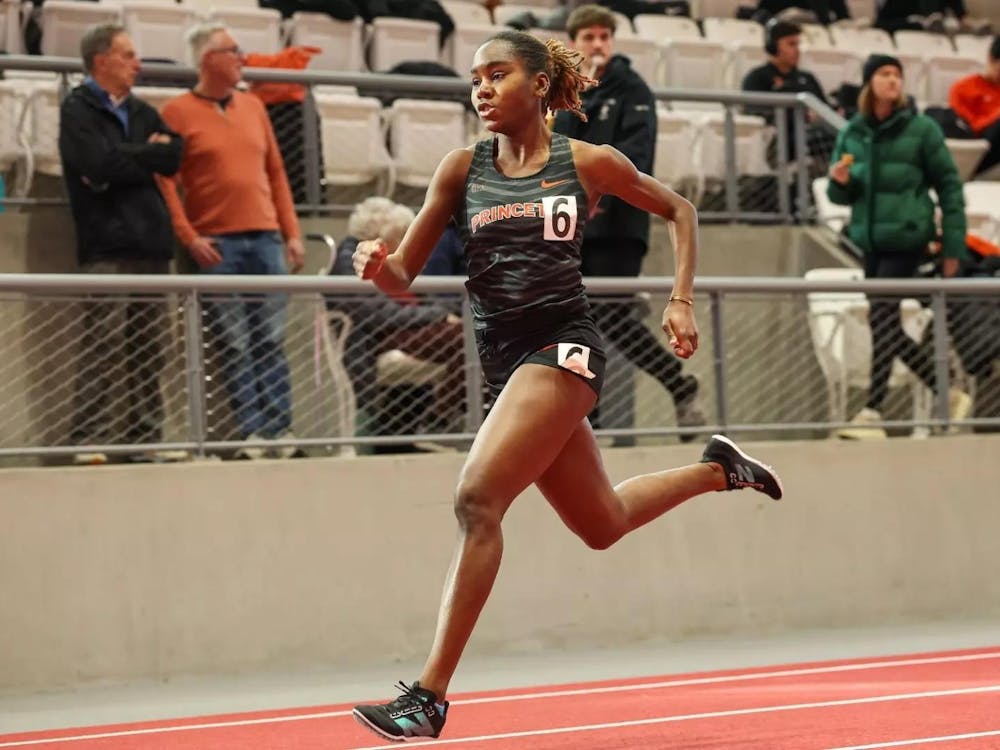Where can you find a molecular biology major sharing research next to a French and Italian concentrator, both presenting posters in the same room as a computer scientist?
The event, taking place on Thursday, May 11, from 10:30 a.m. to 5 p.m. in Frist Campus Center, will showcase research conducted by over 200 undergraduates, graduate students, postdoctoral researchers, and other non-faculty researchers, spanning fields from the natural sciences, social sciences, and engineering to the arts and humanities.
This year, Princeton Research Day has an online and mobile app called Guidebook to allow visitors to follow the program of presentations. Visitors can vote for their favorite presentations on Guidebook, and winners will be presented a personalized award certificate signed by the University President, Provost, Dean of the College, Dean of the Faculty, Dean of the Graduate School, and Dean for Research.
Throughout the event, the tag #PRD17 will be used on social media.
Research Day will host three types of sessions: 10-minute talks, posters, and 90-second elevator pitches.
Harrison Blackman ’17, a history concentrator with certificates in urban studies, Hellenic studies, and creative writing, will be presenting his spring junior paper.
“I always think it’s fun to share your research with a larger audience and also to see all the great research that other people are doing that you don’t always get to see,” Blackman said.

Blackman is a former Street editor for the ‘Prince.’
His 10-minute talk, titled “Princeton’s Lost Museum: Arnold Guyot’s E. M. Museum and the history of American natural science,” explores the worldview of the late University geology professor Arnold Guyot by studying traces of a revolutionary natural science museum that Guyot created at the University in the early 19th century.
“It is a challenge to try and fit the story you want to tell in 10 minutes,” he explained. “My strategy is to pick one or two points that I want to emphasize in an engaging way with compelling images.”
Blackman also noted that, as a historian, research is about crafting a narrative from lots of small details.

“For history, it’s the devil in the details,” he said. “The details make it really rich and compelling. And it’s finding the themes, unearthing them, like dinosaur bones.”
In addition to talks, Princeton Research Day will feature poster presentations.
Anna Kimmel ’18, a junior in the French and Italian departments pursuing a certificate in dance, will be presenting a poster that stems from her fall junior paper research. Her project focuses on an ethnographic study of contemporary West African dance in Burkina Faso, including the role that it has played in shaping the post-colonial identity for the nation, as well as how dance has been used to unify the national culture and national identity, she said.
“Particular to the project, I learned how to articulate why art is valuable to me, and learned how to write that and communicate that to an audience,” Kimmel said, adding that more generally, she learned to craft an argument in a scholarly fashion and to have confidence in her ideas by supporting them with text and now with a visual aid through a poster for Research Day.
“A poster isn’t really intuitive for the humanities,” she said, noting that reducing her junior paper, which was over 50 pages long, into a poster was the biggest challenge. “Ultimately it came down to finding out what was actually really important to you within those pages,” she said.
Austin Wang ’20 is one of a handful of freshmen presenting at the event. His research, which was all conducted before coming to Princeton, is about using bacteria to convert waste products to electrical energy efficiently. He said he looks forward to sharing his own research while also exploring research conducted by other students.
“One of the biggest things about communicating science is obviously trying to present it in a way that other people can understand, but also trying to keep in mind why people should care and how it will impact their lives directly,” Wang said.
Zach Stier ’20, a prospective mathematics major, will present work he conducted at the Princeton Plasma Physics Laboratory on developing an animated visualization of how oceans and land masses change with time.
“It’s a bit of a fine line between providing enough technical detail and too much technical detail,” Stier said.
The event will not be limited to posters and talks, but will also showcase interactive exhibits.
James Tralie ’19, a geosciences major pursuing certificates in French, film, and planets and life, will be presenting a video he originally made for a French class project.
“I wanted to envision what a world would be like if experiences were entirely virtual and all that we thought was real was actually just a part of this larger network of computer programming,” Tralie said.
He hopes to save time after his video to start a conversation with the audience.
“I’m always looking for new forms to present my work in, and it’s always really nice to be able to spark a really cool discussion around the project afterward,” Tralie said.
A fourth-year graduate student in the Department of Mechanical and Aerospace Engineering, Matthew Fu will be giving a 10-minute talk on research related to his thesis work — a new type of surface coating that could help ships move faster.
“The opportunity to explain what I’ve been up to is rare,” he said, noting that he mostly interacts with people in his lab or people familiar with his field. “It’s a lot of fun to be able to explain in a high-level way what it is I’ve been working on for a couple of years.”
Princeton Research Day is a collaborative effort led by the offices of the Dean of the College, the Dean of Faculty, the Dean of the Graduate School, the Dean for Research, and the Provost.







